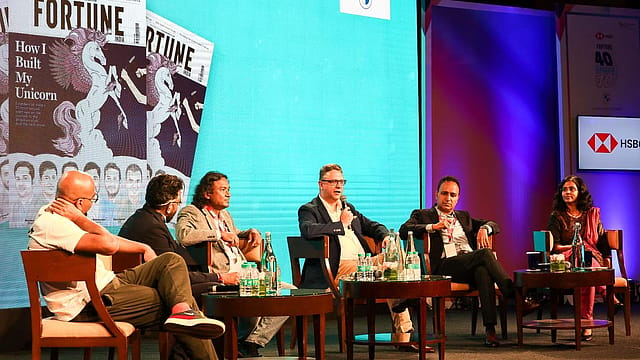Fortune India 40 Under 40: How business leaders navigated choppy waters
ADVERTISEMENT

Businesses have faced several challenges over the past two and half years. From the once-in-a-lifetime pandemic to the ongoing war in Ukraine, leaders have been on their toes to steer clear of choppy waters.
"The new normal is rapid change," says Devarajan Iyer, chief executive officer at Lifestyle Retail. "Today, the biggest thing that we look at as leaders is how do I secure my next two quarters. What is going to change in the next two quarters? Nobody knows what's going to happen."
"As leaders, you just need to have an idea on how the consumers are going to move, have conviction and belief in your ideas and just go ahead. That's how we are planning. For us long-term is one to two years and short-term is next two quarters. The situation is so turbulent that it is completely changing almost every month," Iyer says.
"Dollar prices keep changing, fuel prices keep changing. Suddenly, when you increase prices, sales come down, when you drop prices, margins come down. It's a world which is very amorphous," adds Iyer.
According to Daisy Chittilapilly, president, Cisco, India and SAARC, when a disruption happens or a crisis happens "you go back to looking at whether your value to all of your stakeholders is still standing."
"We ask leaders to stay very close to your stakeholders and have advisers. One will hope that when you get to a crisis or disruption, you know who to call in these three, four, five sets of stakeholders that you have and they'll tell you the good, bad and the ugly," she adds.
For the auto sector, it was not just the pandemic, says Vikram Pawah, president and CEO, BMW Group India. "If you look at the last two and a half years, there's been a rapid crisis one after the other. Covid-19 was the starting point when retail business was shut down. As soon as we started coming out of Covid-19, we were hit with the semiconductor crisis which is still continuing and after that the geopolitical situation that led to logistical challenges across the world. And then the lockdowns by some countries impacted trade. It's becoming a norm," Pawah says.
However, Shekhar Kirani, partner at Accel Partners, believes chaos or change gives birth to new companies. "Before the Covid-19 pandemic a lot of companies were doing well but overnight all the consumer companies literally stopped. They also realised funding is scarce. One quick change they all focused on is growth with good unit economics. They're still burning money, but they realised that in case they need to stop the growth, they'll survive," says Kirani.
"Post Covid-19, consumer behaviour changed in India. All those companies which had a better model rose faster. And 2021 was an extraordinary year for India in terms of the amount of growth and leadership money coming to India from across the globe," Kirani adds.
Shantanu Deshpande, founder and CEO of Bombay Shaving Company, says the last two years were brilliant for his startup. "Three four fundamental things worked very well for us in the last two years. We structurally focused on areas where our competitors were either unable to fulfil supply chain at a primary level and at the store level," Deshpande says.
The Covid-19 pandemic gave a very strong reset opportunity to young companies to go from ₹50 crore to ₹300 crore revenue, he adds.